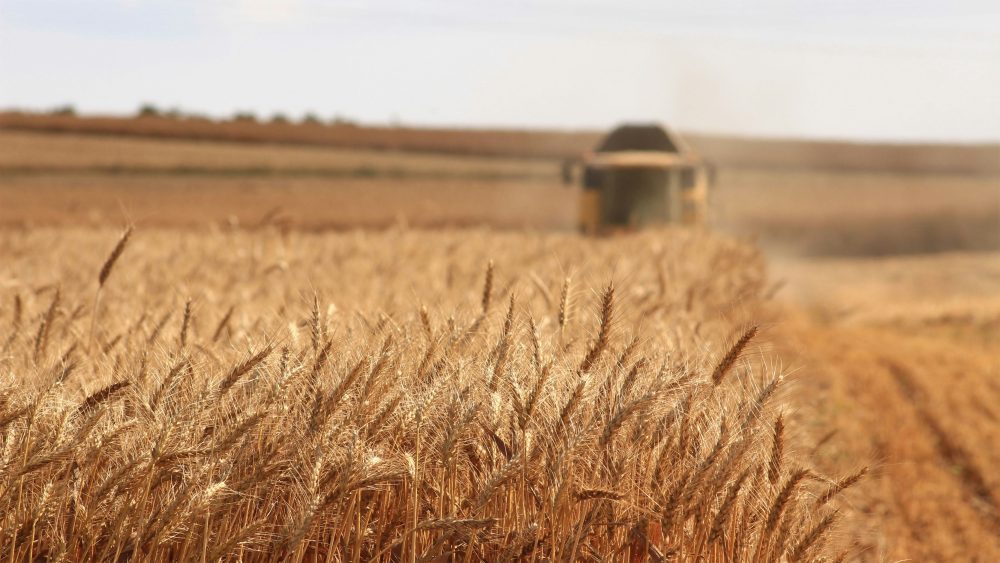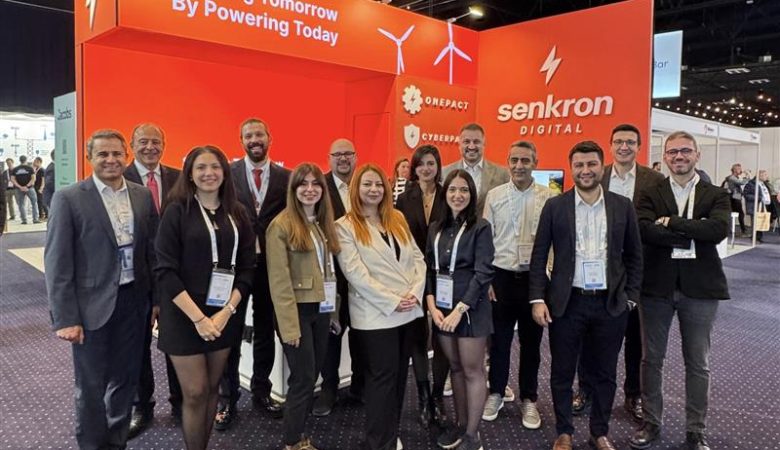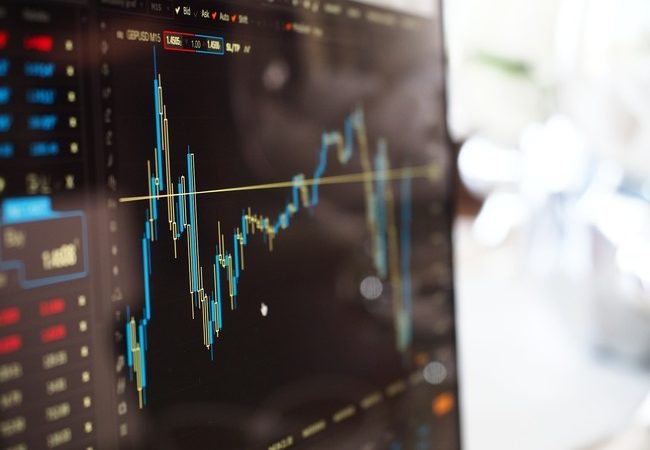Did you know AI could boost crop yields by up to 67%? This fact highlights the power of artificial intelligence in farming. Dave Antrobus, Co-Founder and Chief Technology Officer of Inc & Co, leads this change. He’s bringing advanced AI tech to agriculture.
Antrobus isn’t just making small tweaks; he’s changing farming in the UK. His goal is to use the latest tech to manage resources better, increase efficiency, and promote green farming. His efforts are already making a difference. As he keeps innovating, farming in the UK will see big changes.
Introduction to Dave Antrobus and AI in Agriculture
Dave Antrobus is known for his innovative work with AI in the UK’s farming scene. He’s pushing farming forward with technology. his focus? To update old farming ways with new tech. This includes making tools that help farms produce more and do it sustainably.
Dave Antrobus believes AI can make farming better and waste less. He’s all about using AI to get more crops and help the environment. This is big for UK farms today.
He’s using digital farming to solve big farm problems. With AI, Dave turns challenges into chances for farms to do better. This is changing the farming game.
Transforming UK Farming Practices
Modern farming in the UK is changing a lot. This is because of new AI technology. Farmers now use machines and automation more than ever. This makes farming more efficient and productive. Using AI, farming is getting better at planting, fertilisation, and harvesting. It also cuts mistakes and saves money on labour.
The change isn’t just about doing things better; it also helps make more UK food. This has a big impact on agriculture’s economy. AI lets farmers use their resources better and grow more crops. This means they make more money and farming is better for the planet.
Now, farmers can plant with great care and keep a closer eye on their crops. With AI, they can gather and analyse lots of data. This helps them make smart decisions. As AI keeps growing in farming, it introduces new standards for farming in the UK.
Revolutionising Crop Management
The use of advanced AI in crop monitoring is changing farming for the better. It’s making agriculture more efficient and precise. Now, farmers can use smart algorithms and machine learning to keep an eye on crop health. They can also predict how much they’ll harvest and manage pests better.
This tech has changed how farmers view their fields. With real-time data, they spot disease, lack of nutrients, and water problems early. Catching these issues early is key to keeping plants healthy and getting great yields.
AI isn’t just about keeping plants healthy. It also predicts how much crop a farmer will get. This helps plan harvests, meet market demand, and reduce waste. Precision farming means each plant gets just what it needs. This boosts both output and sustainability.
Pest management has improved too, thanks to AI. Instead of checking crops by hand, which is slow and not always right, AI uses sensors and cameras. This way, it catches pests fast and tells farmers so they can act quickly.
Bringing AI into farming is a huge step forward. It makes farming better by increasing efficiency and pushing for precise farming. This way, farming is ready for tomorrow’s challenges. It promises a sustainable and abundant future for agriculture.
Enhancing Livestock Management with AI
Recently, using artificial intelligence (AI) has greatly improved sustainable livestock farming. AI now plays a key role in keeping farm animals healthy and productive. It helps track animal health, letting farm managers keep a close eye on their livestock’s well-being.
AI provides immediate data on animal health, spotting early illness signs. This quick action helps stop diseases from spreading and boosts animal welfare. With AI, farmers can also automate feeding, making sure animals get the right nutrients at the right times.
Furthermore, AI helps watch how animals behave. This gives farmers a clearer picture of what their animals need. These insights lead to kinder and more sustainable farming methods. This not only improves animal welfare but also farm productivity.
In summary, AI’s introduction to livestock management is changing farming for the better. By using AI for health tracking and other tools, the livestock sector is moving towards more efficient and kinder farming.
AI-Powered Precision Agriculture
AI-powered precision agriculture is changing how we farm. It leads to more crops and less waste. By using satellite images and remote sensing, farmers get to see into the well-being of crops, the state of the soil, and the weather over large areas.
They also use IoT sensors to collect immediate data about the soil’s moisture, its temperature, the nutrients present, and the health of the plants.
Machine learning is key. It works with huge amounts of data to predict yields accurately and use resources wisely. Advanced climate models also help predict the weather and the effects of climate change. This helps farmers to plan better. With Variable Rate Technology (VRT), treatments can be adjusted for different parts of a field. This makes things more efficient and reduces the use of products not needed.
Drones with sensors and cameras provide up-to-the-minute information about crops. Paired with smart irrigation systems, this tech ensures water is used wisely. It does this by checking soil moisture, looking at weather predictions, and understanding what the crops need. Also, analyzing the soil means fertilisers can be applied just right. This protects the environment by using less water, fertilisers, and pesticides.
Tech helps spot pests and diseases early on. It makes weather forecasting accurate, so farmers can get ready for bad weather like droughts or floods. Reliable predictions of harvests let farmers organise their harvests better. This cuts down on waste after harvesting and makes farming more economically sound.
On a larger scale, data analytics provides a look into market trends, price predictions, and what consumers want. This helps align farming with market demands. This same data helps shape agricultural policies and support plans. It boosts productivity and sustainability by directing resources and subsidies more effectively. Precision agriculture, with its foundation in smart farming and AI, is creating a new standard. It’s changing the way we grow, manage, and sustain our crops.
The Role of AI in Sustainable Farming
In recent years, the use of artificial intelligence (AI) in farming has helped a lot in making farming more eco-friendly. Thanks to quick progress in AI, farmers can now use water and soil more wisely. This reduces waste and makes farming better for the planet.
Applications of AI, like precision farming, have been closely studied for 30 years by K-State researchers and local farmers. These technologies allow farmers to keep a close eye on their crops, foresee the weather, and use their resources in a smart way.
Meanwhile, companies like SweetWater Technologies are leading the way with drones and new farming techniques, powered by AI. This method ensures that farmers use exactly what they need, protecting the environment and helping ecosystems stay healthy.
Big companies are also getting involved in sustainable farming. For example, McDonald’s is working with AgMission™ and FAI Farms. They want to farm in a way that saves forests and sources things like beef and soy responsibly.
Programs like Microsoft’s FarmBeats for Students offer valuable lessons to FFA chapters about precision farming. This helps the next generation learn how to farm in a way that is good for the planet.
Support from policies like the sustainable aviation fuel tax credit from the Inflation Reduction Act shows a big commitment to sustainability. Even though it doesn’t directly relate to farming, it’s part of a larger effort to lower carbon emissions in many industries, including agriculture.
Putting AI and sustainable farming together is leading us into an era where saving resources is key. With these new technologies, farmers can do their part to make sure we can farm in a way that’s good for the Earth, now and in the future.
Challenges and Solutions in AI Implementation
Bringing AI into farming comes with big hurdles. These include the high cost to start, a gap in tech skills, and worries over keeping data safe. The starting price for AI technology can stop many farmers. This is especially hard for smaller businesses. It’s tough for them to spend on new tech.
Also, farming has challenges like a lack of tech know-how. Understanding AI can be hard for many in farming. This makes it tough to use AI well, which may lessen its benefits.
Besides, farmers are worried about keeping their data safe. They must be sure that AI systems protect their info. If not, they might not use AI. Clear rules and promises are needed to overcome this fear.
But, there are ways to get past these AI adoption barriers. Things like government help and money perks can make AI more reachable. Training and learning from groups like the Michigan Manufacturing Technology Center can fill the skill gap. This lets farmers use AI systems well.
Safe ways to handle data and firm privacy rules can deal with security doubts. Teaming up with big names like Siemens helps build trust in AI. With these steps, using AI in farming will likely grow. This means more food production and better use of resources.
Case Studies: Successful AI Integration
AI is changing British farming in many areas. In this section, we explore a few AI farm success stories and agricultural transformation case studies. They show how AI has improved productivity, cut costs, and raised outputs.
Agri-Tech East introduced AI systems to monitor soil. This let farmers adjust irrigation and fertilisation using real-time data. Result? A 30% boost in crop outputs and less water and fertiliser used. This AI farm success story shows tech’s role in sustainable farming.
At Harper Adams University’s Future Farm, AI drones changed how they manage crops. These drones cut labour costs and improved pest control precision. The accurate data from drones helps in making better farm decisions, boosting productivity.
The Hands Free Hectare project went all-in with AI. They used autonomous tractors and drones to work a hectare of land with no humans needed. This breakthrough agricultural transformation case study shows AI’s impact on farming’s future.
Agrospheres Limited’s story is about smarter livestock management. Their AI smart sensors check the health and behaviour of animals. This leads to quicker disease detection and personalised care. It improves animal welfare and farm efficiency.
These stories of AI farm success stories and agricultural transformation case studies highlight AI’s big role in farming’s future. AI’s ability to boost efficiency and cut costs is leading UK farming into a new era.
Impact of AI on the Future of Food
AI has massive potential to transform the food supply chain, making it stronger and more secure. It’s set to change how we produce, manage, and get food to tables everywhere. This is vital today as we face challenges like climate change, dwindling natural resources, and growing populations.
AI boosts food security by making farming more precise. It lets farmers use resources wisely, cut down waste, and grow more food. Predictive analytics and real-time data are key. They help keep food production stable even when the weather is unpredictable.
AI also makes food supply chains tougher against disruptions. It watches over and manages how food moves from place to place. This keeps food coming and cuts down on losses. It’s a big step towards a food distribution network that’s always strong and ready.
By bringing AI into farming, we’re making big strides towards a future where everyone has enough good food. AI tackles key challenges like using resources well, adapting to climate changes, and managing supply chains. It’s crucial for the long-term goal of feeding everyone, well into the future.
AI in Agriculture
AI is changing how we farm, offering tools from predictive analytics to smart irrigation. Farmers now see real benefits. These tools help in many ways, such as improving crop health and saving water.
Predictive analytics helps farmers by using data on weather and crops. This data predicts harvest sizes and spots risks early. It ensures resources like water and fertiliser are used well.
Robotics in farming means less hard work for humans. Machines like tractors now work on their own, lowering costs. Drones check crops from the sky, spotting diseases early and spraying pesticides accurately.
Smart irrigation systems keep an eye on soil and weather. They adjust watering to save water and keep crops healthy. This smart use of resources helps in fighting water scarcity.
AI is not just about doing jobs humans used to do. It’s improving how farms are run. It helps farmers use data to make better decisions. This leads to more crops, less waste, and a healthier planet. The future of farming with AI looks bright, promising even smarter farming methods.
The Role of UK Tech in Agricultural Innovations
The UK tech scene is revolutionising agriculture, making the country a leader in farm tech. Tech firms and farmers are working closely, improving how farms operate. This is all about making farming more efficient and green.
UK tech is all about precision farming these days. By using advanced tech like sensors and AI, UK companies are boosting crop yields. They are also keeping soil healthy. This lets farmers make smart choices, which helps produce more food with less harm to nature.
UK tech firms are also serious about being green. They’re working to use less energy and water in farming and to create less waste. Their goal is to make big reductions by 2025. This shows the UK’s strong effort to fight climate change with new tech.
Tech in the UK is also using AI and big data to improve farming. Companies like NRGene are making it faster to grow important crops and animals. This makes farming more efficient and could lead to greener food production.
Besides, UK tech companies spend a lot on research and development. They’re always looking for new ways to farm better. This drive for new discoveries keeps UK farmers ahead worldwide.
To sum up, UK tech and farming are teaming up for amazing advancements. With tools like precision farming and AI, the UK is heading towards a future where tech and agriculture work together well. This means a thriving and eco-friendly farm sector.
Collaborative Efforts in AI and Agriculture
AI in agriculture advances thanks to collaborations between tech developers, agronomists, and farmers. Events like FarmCon 24, with 3,500 attendees, showcase these partnerships. Here, innovations like drone technology for land scouting in Farming Simulator 25 are introduced, showing teamwork in improving farming through tech.
Academic support is key in this field. Research projects and special issues enhance AI’s role in agriculture, creating a space for teamwork. An example is the development of real-time weather simulation and better animal AI in farming simulators. The development of Farming Simulator 25, which took three years, shows the hard work and teamwork needed for innovation.
This teamwork approach brings real benefits to farming. Improved graphics, dynamic lighting, and better soil simulation are some achievements. The addition of new crops shows the adaptability and progress from technological advances.
Feedback from the farming community at FarmCon highlights the value of new features, showing the effectiveness of cross-sector teamwork. As these partnerships grow, they will lead to more efficient and sustainable farming solutions. This makes AI an essential part of the future of agriculture.
Conclusion
At the heart of UK farming’s future, technology plays a key role. It brings the power to change agriculture for the better. AI advancements offer fresh ways to farm more smartly and sustainably. This is vital for meeting the needs of a growing world.
Throughout this article, we’ve seen how AI is changing farming. From better ways to manage crops and animals, to farming that’s good for our planet. Leaders like Dave Antrobus are guiding UK farming towards a future where tech is key. A future where farming is efficient and kind to the environment.
The outlook for AI in UK farming looks bright. With new tech and teamwork, growth and productivity are reaching new heights. By using technology, UK farmers can tackle problems better, make smart choices, and ensure farming thrives. Looking forward, AI’s role in farming is set to grow. It will help keep our food supply safe and sustainable for all.





